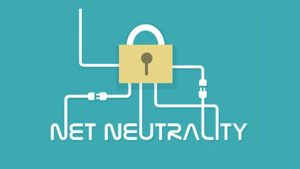FCC ruling sparks mixed response from online firms and industry analysts.
The controversial ruling by the U.S. Federal Communications Commission (FCC) to lift net neutrality has angered many internet activists; but it could also have a significant impact on the way business is done online.


On Dec. 14, 2017, the five commissioners of the FCC, the U.S.’s top media watchdog, voted three-to-two to end rules preventing internet service providers (ISPs) from charging or blocking websites that offer products or services that may compete with their own.
The concept of ‘internet neutrality’ has been a running debate for years yet it was enshrined in U.S. law under Barack Obama in 2015, meaning that information could flow freely over the web without interference or additional costs imposed by ISPs and creating a level playing field for startups and entrepreneurs.
Now, following the FCC ruling, ISPs could begin to charge individuals and institutions for access to content.
Protest and opportunity
Supporters of net neutrality say that the openness of the internet has been key to its rapid development and allowed innovative firms like Skype and Netflix to compete with telecoms providers and traditional media giants alike.
“ISPs probably won’t immediately begin blocking content outright, given the uproar that this would provoke,” Michael Cheah, General Counsel for the video sharing platform Vimeo, was quoted as saying by The Guardian last week. “What’s more likely is a transition to a pay-for-play business model that will ultimately stifle startups and innovation, and lead to higher prices and less choice for consumers.”
Yet cable companies, who are the actors mostly likely to benefit from the changes, have attempted to play down the impact.
“This is not the end of net neutrality,” wrote David Cohen, senior executive vice-president of Comcast, on his blog ahead of the decision by the FCC. “Despite repeated distortions and biased information, our internet service is not going to change. Comcast customers will continue to enjoy all of the benefits of an open internet today, tomorrow, and in the future.”
Opponents, including Democrats and several leading internet giants, such as Netflix, Spotify, and Wikipedia are looking to use the Congressional Review Act to overturn the FCC’s decision, which promises for an interesting debate ahead, yet many industry experts believe that the doom-mongering is exaggerated and that customer preference will ultimately win out.
“Prior to 2015, there was no net neutrality and… the Internet worked just fine for most people,” wrote analyst Michael Wade in Fortune. “There is little reason to believe that a future with no net neutrality regulation will be very different from the past.”












